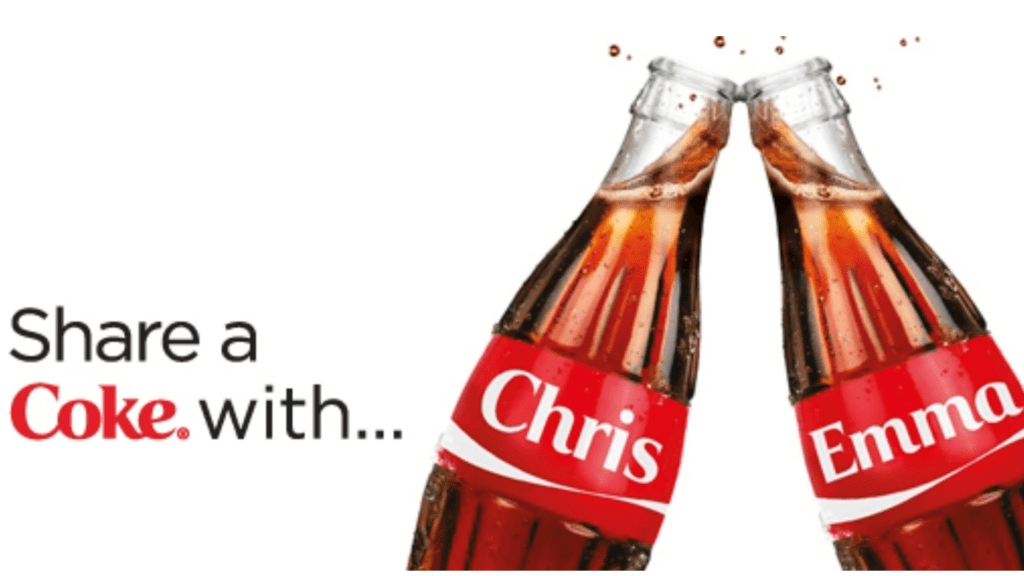In today’s fast-paced, ever-evolving digital landscape, consumers are bombarded with countless advertisements, promotions, and brand messages every single day. With so many options, it’s understandable to ask how a brand captures the attention and trust of its audience.
The answer lies in authenticity – a key factor that is becoming increasingly important in marketing and broadcast PR spaces.
And, when it comes to authenticity, brand ambassadors play an phenomenally important role.
But what makes authenticity so vital in marketing? And why
do brand ambassadors matter in cultivating an authentic brand identity.
In this blog, we will delve into these questions by exploring the significance of authenticity, the role of brand ambassadors, and how they help create deeper connections with consumers either across social media, television or radio.

Why authenticity in marketing is important
When a brand is authentic, it fosters trust, loyalty, and an emotional connection with its audience.
In a world where consumers are becoming more sceptical of traditional advertising methods, authenticity is incredibly important and can serve as a breath of fresh air. Consumers say authenticity is a key factor when deciding what brands to support and are more likely to buy from a brand that aligns with their values. Audiences are also more likely to believe an ambassador they trust, rather than one they don’t connect with and feels fake.
Authentic marketing goes beyond simply promoting products; it’s about establishing a brand persona that feels real, relatable, and transparent. This can be achieved through creative storytelling, honest communication, and showing genuine vulnerability. Brands that get it right demonstrate a commitment to their customers’ needs, interests, and desires, building trust and loyalty over time.
These individuals help spread a brand’s message by sharing their personal experiences and endorsing the company in an authentic, credible and trustworthy way.
So, why do brand ambassadors matter in the quest for authenticity? Let’s take a closer look at several reasons:
-
-
- Relatability and Trustworthiness
-
Modern consumers and audiences are looking for real, relatable experiences. Brand ambassadors help make a brand feel more human and approachable by putting a face to the company. When consumers see real people rather than faceless corporations promoting a brand, they are more likely to relate to it. This relatability is essential for building trust, an absolute cornerstone of authenticity.
For example, consider a fitness brand that uses everyday fitness enthusiasts as brand ambassadors, rather than only relying on professional athletes. These ambassadors are more likely to resonate with customers who see them as peers, not unattainable celebrities. The trust factor here is incredibly important, as consumers will feel that the ambassador’s endorsement is grounded in real experience and not just a paid partnership for their own rewards.
-
-
- Personal Connection and Emotional Engagement
-
Brand ambassadors also foster emotional connections with consumers. It’s a fact that people connect with people, not brands. When an ambassador genuinely believes in a product and communicates that passion, it can have a profound effect on the audience. This emotional engagement is often far more impactful than traditional advertising methods, which can feel more transactional at best.
An example would be a beauty brand that partners with influencers who have a shared passion for skin care which can create content that resonates deeply with their audience. These ambassadors might share personal stories about their skincare journey, creating an authentic narrative that consumers can relate to. A real “me too” moment. Such personal connections foster a sense of community around the brand, making it more attractive to potential customers.
-
-
- Credibility and Social Proof
-
Consumers increasingly rely on the experiences of others before making purchasing decisions. In fact, user-generated content highly impacts what audiences buy, as it’s more relatable. Brand ambassadors provide social proof, showcasing that real people enjoy and trust a product. When an ambassador shares a personal testimonial or demonstrates how they use a product in their daily life, it reinforces the brand’s credibility.
An ambassador’s endorsement is more credible than a traditional advertisement because it’s not directly from the company, they are a third-party giving a recommendation, like a friend of family member would. This peer validation is a powerful tool in convincing potential customers that a brand is authentic and trustworthy.
-
-
- Expanded Reach and Targeted Messaging
-
Brand ambassadors can also help a brand expand its reach and tailor its marketing efforts to specific audiences. By leveraging the ambassador’s personal network and influence, brands can access a wider pool of potential customers who may not have otherwise come across the company. A third-party spokesperson promoting a product as part of one of our radio days for instance, could also create an Instagram post about what they are talking about thus providing more overall reach and engagement. Furthermore, brand ambassadors often have established relationships with specific niches or demographic groups, allowing brands to target their messaging more effectively.
-
-
- Consistency in Message Delivery
-
Brand ambassadors serve as a consistent voice for the brand, helping to ensure that its messaging remains cohesive across multiple channels. Whether an ambassador is sharing content on social media, attending events, or participating in broadcast PR interviews, they reinforce the brand’s core values and identity.
By having ambassadors who align with the brand’s ethos, companies can maintain consistency in how they present themselves to the public. This consistency is crucial for building long-term trust and loyalty. A brand that communicates the same message consistently is more likely to be perceived as authentic and reliable and is more likely to generate return customers.

How to select the right brand ambassadors
Whether you are selecting a brand ambassador as part of a broadcast PR campaign with Shout! Communications, or choosing one for the wider marketing mix, it is crucial to ensure authenticity. Here are some key factors to consider:
- Alignment with Brand Values
The ambassador’s personal values should align with the brand’s core beliefs. For example, if a company promotes environmental sustainability, partnering with an ambassador who is passionate about eco-friendly living will feel authentic to the target audience. On the other hand, if the ambassador’s values don’t match those of the brand, the partnership may come across as inauthentic and disingenuous and will likely attract a negative response.
- Authenticity and Credibility
It’s important to select an ambassador who is known for their authenticity and credibility. Consumers can easily spot when an influencer or ambassador is simply doing it for the money! An authentic ambassador is one that genuinely believes in the product and shares honest opinions with their audience. They should not come across as overly promotional or contrived.
- Audience Engagement
The effectiveness of an ambassador depends on their ability to engage their audience. Look for individuals who have a dedicated and active following – someone who resonates with their community and elicits real conversations and interactions. Engaged audiences are more likely to trust an ambassador’s recommendation, and this can translate to higher brand loyalty. The ambassador needs to be a true communicator too, to ensure your brand key messages are successfully cutting through. If deciding on broadcast interviews as part of your wider marketing strategy, the team here at Shout! Communications can help you with media training in order to get the best out of any broadcast PR opportunity.
- Long-Term Partnership Potential
Building a relationship with a brand ambassador over time can lead to a more authentic connection with audiences. A long-term partnership allows for a deeper narrative to unfold, where the ambassador can share their journey with the product, becoming a more integral part of the brand story. This sustained authenticity helps keep the brand’s message fresh and genuine – a bit like a Netflix series where you get to learn more about the characters each time you watch.

Examples of successful brand ambassadors
Many brands have successfully used ambassadors to convey their authentic messaging. Here are a few standout examples:
-
-
-
Nike and Colin Kaepernick
-
-
Nike’s partnership with Colin Kaepernick is a prime example of using a brand ambassador to embody a company’s values. Despite the controversy surrounding Kaepernick’s protests against racial injustice, Nike stood by him, using him as the face of their “Just Do It” campaign. This bold move resonated deeply with their target audience, particularly younger consumers who valued social justice and activism. Nike’s unwavering support of Kaepernick reinforced the brand’s commitment to authenticity and its alignment with causes that matter to its customers.

2. Dove and the “Real Beauty” Campaign
Dove’s “Real Beauty” campaign, which launched in 2004, became one of the most influential brand ambassador campaigns in the beauty industry. The campaign aimed to challenge traditional beauty standards by showcasing real women of various shapes, sizes, and ethnicities. Dove used ordinary women, rather than supermodels or celebrities, as its brand ambassadors to promote its message of self-acceptance and inclusivity. By focusing on real women, Dove broke free from the stereotypical portrayal of beauty in mainstream media. This approach resonated deeply with a broad audience, particularly women who felt excluded by traditional beauty standards.

-
-
-
Coca-Cola and Personalized Bottles
-
-
Coca-Cola’s “Share a Coke” campaign is another great example of how brand ambassadors can amplify a brand’s message authentically. By printing popular names on bottles, Coca-Cola allowed customers to feel personally connected to the brand, turning the product into a personal ambassador. People shared photos of their personalised bottles on social media, promoting the brand in an organic, authentic way.

Conclusion
Authenticity is no longer a cliché word used in marketing circles; it is a crucial factor in building lasting relationships with consumers. Brand ambassadors are vital to this process, as they humanise a brand, foster trust, and create emotional connections with audiences. By choosing the right ambassadors, companies can amplify their authentic messaging, reach wider audiences, and build loyal customer bases.
In an age where consumers are increasingly sceptical of traditional advertising, authenticity in marketing is the key to standing out. Brand ambassadors, when selected thoughtfully, help brands not just sell products, but establish meaningful, trust-based relationships with their customers. The future of marketing is authentic, and brand ambassadors are leading the way.
Contact Shout! Communications today
Looking to take advantage of brand ambassadors and utilise the power of broadcast PR as part of your wider marketing strategy? Here at Shout! Communications we specialise in helping brands secure media coverage on the most reputable broadcast outlets. With our extensive industry experience and contacts across TV, radio, and online news, we make getting media attention easier than ever. Our media training also ensures you and your brand ambassadors make the very most out of any hard won news opportunity. Let Shout! Communications help you craft, pitch, and land the story that will put your brand in the spotlight. Contact us today to take your brand’s visibility to the next level.





